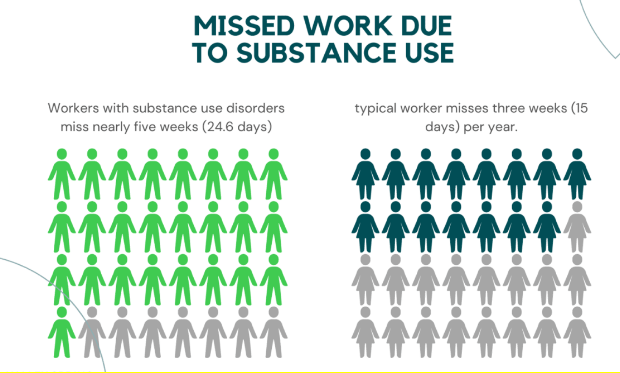As an expert, I have seen in many cases using FMLA seems easy, but gaining is quite tough. You may face financial, workplace, and family challenges before getting an FMLA rehab.
Using FMLA for alcohol rehab can be helpful. However, there are also some challenges and risks involved in this process. In this blog, you are going to have a brief idea about these challenges.

Disclosing Addiction To Employer
Addiction is a disturbing fact in workplaces, too. While looking for the authentification, I got to know several reports, including SAMHSA claimed that businesses lost around $80 billion every year because of having addicted employees.
Even an addict missed office 5 weeks in a year, whereas a nonaddict missed 3 weeks.
Source: Valley Spring Recovery Center

You must tell your boss about your problem to protect your workplace. Sharing with the boss can be complicated and stressful.
Your boss or coworkers may treat you badly, make fun of you, or harass you because of who you are. You may also be worried about losing your reputation, credibility, or career prospects.
Finding In-Network Treatment
FMLA for outpatient rehab doesn’t pay for your care, so you must use your health insurance or find other ways to pay for it.
However, finding a treatment center in your insurance network that fits your wants and preferences can be challenging.
Many of my clients went here and there, but when they came to my workplace, most of their needs were satisfied, and they joined. While joining, they share their experience of finding the facility is a bit easier said than done.
Financial Challenges During Leave
Eye witnessing this type of case, I assure FMLA for rehab only provides unpaid time off, so you’ll have to figure out how to pay your bills without a regular paycheck.
You might need to use your funds, borrow money, or ask the government for help. Taking FMLA could cause you trouble with money, get into debt, or even go bankrupt.
In my point of view, this is a risk you have to take on your own. So, I think it is wise to proceed to FMLA alcoholism only once if you are sure and confident about surviving well during the unpaid period.
Also, you have a financial backup to support yourself and your family while in rehab.
Time Limit For Rehab And Recovery
FMLA alcohol treatment limits leave to 12 weeks per year. That may not be enough time to finish recovery and overcome addiction.
Catching up on professional duties and expectations can be stressful. According to a report, in three months, 76% of alcohol rehab patients are sober, 69% at six months, and 70% at nine months.
Risk of Job Loss After FMLA Expires
FMLA protects your job during your absence but does not guarantee it after you return. Poor performance, misconduct, or downsizing might lead to your termination without FMLA leave.
Relapse or violating your employer’s drug and alcohol policy could cost you your job.
My patient Ricky was employed by a well-known organization and he was here in FMLA rehab for addiction. I tried my best to support him but it seemed like he was here just to spend a vacation.
He wasn’t serious with his treatment. However, he returned to his workplace 1 month later and they found him unable to work as he wasn’t receiving his treatment properly.
So, after that, I found out his employer fired him.
Everything isn’t a piece of cake. You can’t get an FMLA rehab easily when you are bound to work in a workplace, surrounded by other teammates, have responsibility for your family, need financial support, and so on.
FMLA rehab may help you get treatment without losing your job. But for that, you might face issues to get that and maintain that.
- What to Pack for 30-Day Rehab? FREE Checklist - May 30, 2024
- Types of Outpatient Rehab: Difference One Should Know - March 28, 2024
- Truth Behind FMLA: Hidden Hurdles of Alcohol Rehab Leave - March 28, 2024